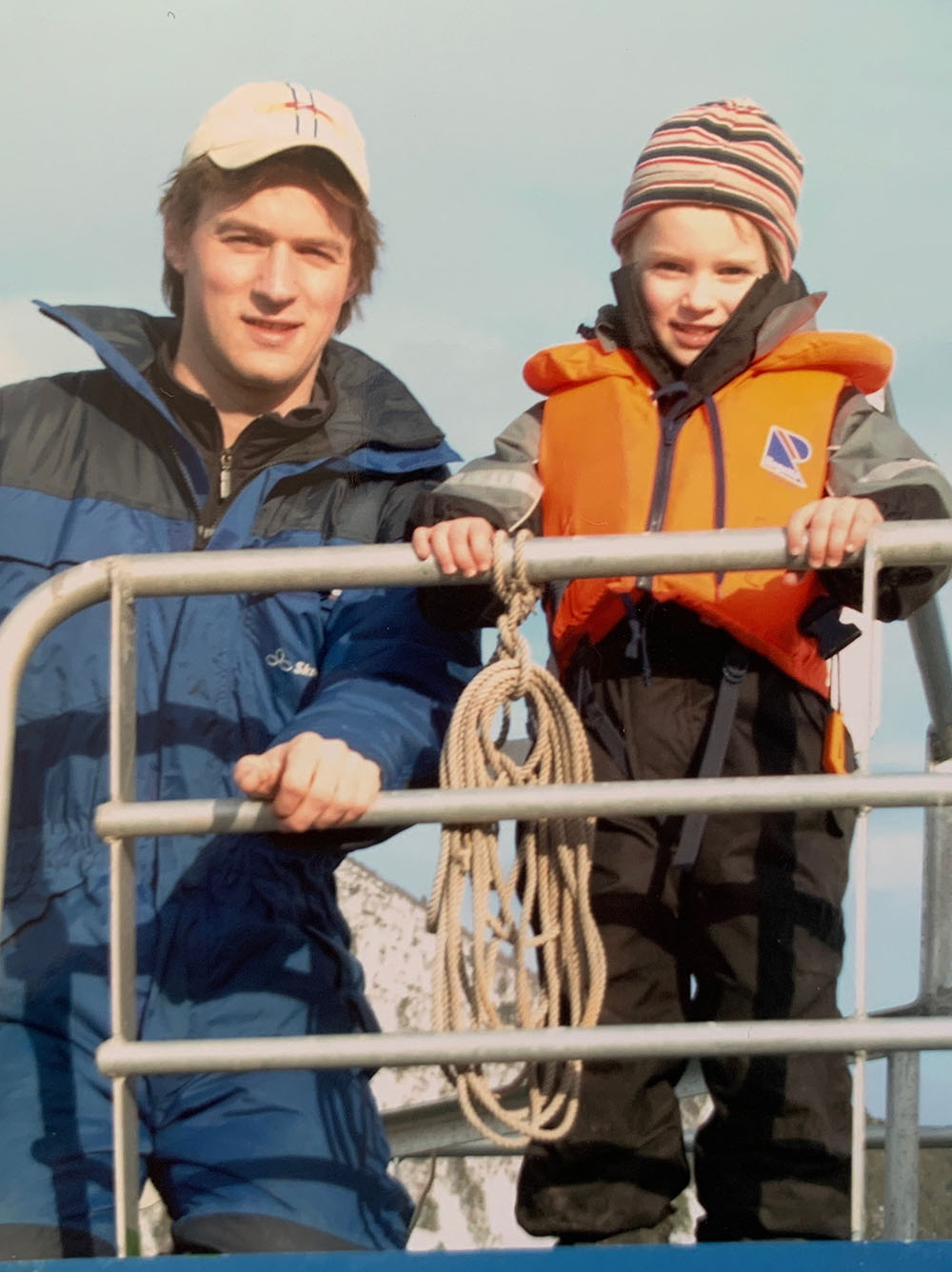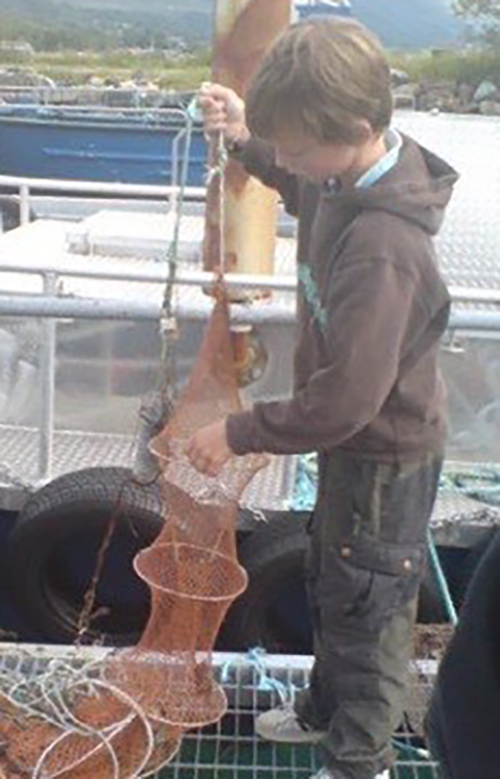Emil Andreassen was involved in salmon farming before he could walk.
Growing up in rural Norway, Emil was raised alongside his father Johan Andreassen’s fish-farming business – which itself was a project born out of the family’s longstanding connection with the ocean. Johan’s grandfather was a commercial fishermen and helped inspire him to follow the same professional path from a young age.
Johan had Emil when he was 20 years old, coinciding with when he was first building up his salmon-farming company Villa Organic.

“I brought him with me to the salmon farm from a very young age,” Johan told SeafoodSource.
Emil said when he was a kid, he would often watch vessels pulling out a salmon harvest or putting smolts into the water.
“When you’re [young] that’s quite cool, seeing the big machinery; seeing industry at that scale was very cool to be a part of,” Emil said. “So, at a very early age, I was very interested in all of it.”
As he grew older, in the afternoons after school and during the summer, Emil would work on the salmon farm.
“I think I got my first boat – my first motorized boat – when I was 8 years old,” Emil said. “It was a small feeding boat at 8 or 10 years old, way too young. It was a small salmon feeding boat; it was used to pull the net pens of the salmon, and it was used to feed the salmon. I would go out to the net pens, pull dead fish, and do some feeding.”
At 14, Emil moved to the U.S. and later went to college in Miami, Florida. Even during that time, Emil was still working and involved in the salmon industry in his trips back home to Norway.
“I think he has it in his blood,” Johan said. “I never asked him to join the industry.”
Much like Emil, Johan was on the water at a young age. Villa Organic’s roots grew from when he and his cousin Bjorn-Vegard Lovik were looking for a way to earn money fishing as kids in the mid-1990s.
“I started very young, enjoying recreational fishing as a kid in the fjord,” Johan said. “We actually started by fishing eel, [but] that was not a great success.”
The bycatch in the fishing equipment, however, turned out to be the ticket to making money for the two cousins. The wrasse in the bycatch could serve as cleaner fish for salmon, though at the time Johan said few salmon farmers in the area were using them for that purpose and didn’t even know about their potential usage as commercial cleanerfish.
“We connected with a marine biologist in Bergen who had observed that fish could actually eat sea lice off of the skin of salmon,” Johan said. “So, we started testing out selling the cleaner fish to salmon farms.”
Salmon farmers have always looked for effective solutions for the perennial problem of sea lice, and one farmer decided to give Johan's and Bjorn’s idea a shot, despite their young age.
“The guy said ‘If this works, I need to buy it for my remaining 11 net pens as soon as possible, but I want to test if it works first,’” Johan said. “It worked. Two weeks later, the guy waved at us in our little boat on the fjord – we were 14 or 15 years old at the time – and said, ‘I need you to fill up the rest of my net pens. I think I’m going to pay you a buck apiece for the fish.’ That was ridiculously good business for us at the time. That was the beginning of our first company called Villa Cleaner Fish, which became Villa Organic.”

The young company became a fast success and scaled up quickly, recruiting new fishermen and buying specialized wellboats to transport the cleaner fish alive over larger distances as it expanded its client base. Johan said just a few years later, in early 2000, the company got a license to farm its own salmon, starting his journey into salmon farming, which eventually grew into Villa Organic and a main provider of organic salmon for Whole Foods.
Johan later sold Villa Organic and “semi-retired” for a short time before returning to the seafood industry with the founding of land-based salmon aquaculture company Atlantic Sapphire, which was oriented around using some of the technology Villa Organic had used for cleaner fish and salmon broodstock. He believed he could adapt it to produce fully grown salmon in land-based farms nearer to end markets. Atlantic Sapphire opened its first “Bluehouse” farm in Denmark, which has since burned down, and opened a giant farm in Miami, Florida, that began operating in 2020.
Johan said soon after Emil graduated from the University of Miami, he asked if there was an opening available at Atlantic Sapphire.
“I said, ‘I don’t think you should because you’ll always be seen as the son of your dad,’” Johan said.
Johan instead suggested Emil work at Platina Seafood – a salmon trading business he founded around the same time as Atlantic Sapphire.
Emil said his father called him “at midnight or something” to offer up the opportunity to take over operations of Platina Seafood.
“At that time, we were one of the biggest importers in the [Southeast U.S.] of frozen fish,” Emil said. “Then, that kind of developed over the years, moved a little bit into other origins like Chilean, and, in recent years, moved into fresh [salmon] commodity trading.”
When Emil took over at Platina, he said a large portion of the personnel went over to Atlantic Sapphire.
“There was myself, an accountant, and a lady in purchasing,” Emil said. “Everyone else – the whole sales team, the CFO, and all the managers – all went over to Atlantic Sapphire because, at that time, it was decided that Platina and Sapphire were going to have nothing to do with each other anymore.”
Johan then sold Platina to Emil so that there would be no conflict of interest between the two companies, Emil said.
Emil took over and began building the business back up but realized the landscape for the company had changed. Salmon companies in Norway and Chile had begun establishing sales offices in Miami, leaving little room for ...








